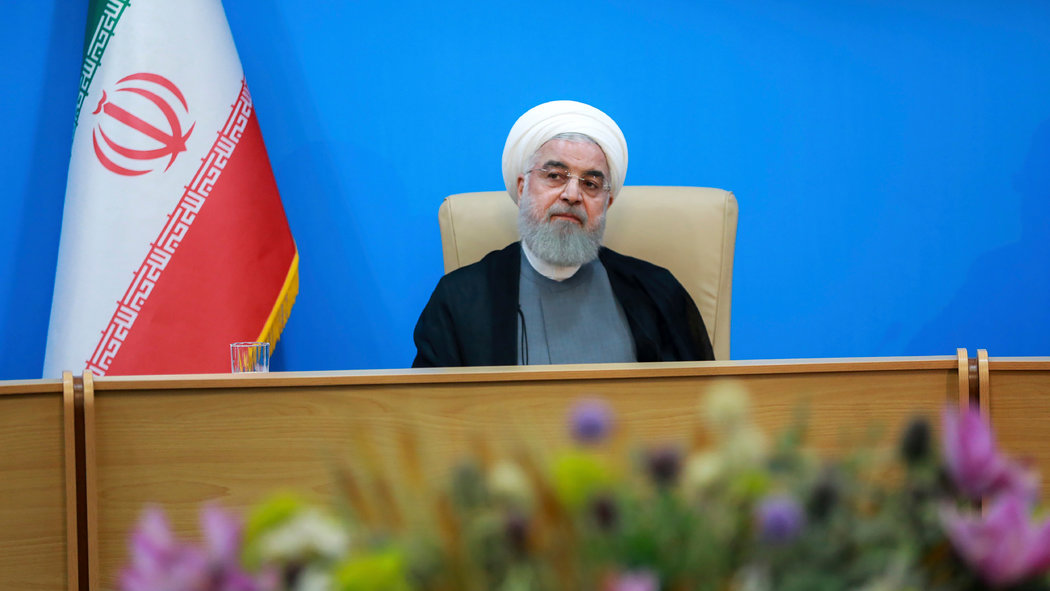Trump’s Proposal for Iran Talks Raises Security Concerns
President Donald Trump’s latest announcement to potentially engage in negotiations with Iran has instigated a wave of apprehension among national security experts and former officials. Critics, including former National Security Advisor John Hannah, express alarm at the prospect of Trump establishing a relationship with Iran’s Ayatollah that mirrors his previously discussed “love affair” with North Korean leader Kim Jong Un.
The Echoes of Previous Negotiations
In the past, Trump characterized his interactions with Kim Jong Un in almost affectionate terms, yet the results of those diplomatic initiatives left much to be desired. Despite an energetic push for dialogue during his first presidency, North Korea continued to bolster its nuclear arsenal, leading experts to question the implications of a similar strategy with Iran.
“Regarding negotiations, we’ll see how this develops,” stated Hannah, a senior fellow at the Jewish Institute for National Security of America (JINSA), during a discussion in Washington, D.C., just after Trump’s announcement.
Concerns About Trump’s Approach
Hannah articulated substantial worries that Trump’s recent overtures might unintentionally replicate the ineffective dynamics established with North Korea. “Trump came out strong against Kim Jong Un but then got deeply involved in negotiations, allowing himself to be drawn in. He was flattered, and discussions dragged out throughout his presidency,” Hannah commented. “Ultimately, no meaningful progress was made in dismantling North Korea’s nuclear program. That would be the most alarming scenario with Iran.”
This week, Trump took to his social media platform, Truth Social, to announce his intent to negotiate a “Verified Nuclear Peace Agreement,” asserting that talks should commence “immediately.” He painted an optimistic picture of a “big Middle East celebration” contingent upon reaching a successful deal.
Contradictory Actions: Sanctions and Negotiations
Interestingly, Trump’s diplomatic overture came just a day after he signed an executive order to reinstate a “maximum pressure” sanctions campaign aimed explicitly at Iran’s oil exports, intending to thwart further nuclear advancement. However, after the signing, Trump expressed ambivalence, informing reporters that he felt “torn” about his decision and was “unhappy” with the outcome.
Uncertainty Over a New Diplomatic Framework
As discussions about negotiations unfold, critical questions concerning the framework of any potential agreement remain unanswered. It remains unclear how Trump’s proposed negotiations would differ from the Biden administration’s current strategies, or what the components of a new agreement might include.
Historically, the original Iran nuclear deal, formally known as the Joint Comprehensive Plan of Action (JCPOA), was signed during President Obama’s administration. This international agreement involved the U.S. alongside China, France, Russia, the U.K., Germany, and the European Union but was abandoned by Trump in 2018.
Hannah pointed out that Trump’s newfound commitment to diplomacy might indeed serve as a negotiating tactic. However, he cautioned, “After 25 years of discussions, Iran remains on the verge of acquiring nuclear weapons.”
Imminent Geopolitical Challenges
This situation is further complicated by geopolitical developments expected in October. Russia is set to assume the rotating presidency of the United Nations Security Council, an event that might hinder U.S. diplomatic engagement with Iran.
Additionally, the date October 18, 2025, looms large on the horizon as it marks the expiration of key snapback sanctions provisions under the JCPOA. This could hinder the remaining signatories’ ability to rapidly impose sanctions on Iran in the event of treaty violations.
Former Special Representative for Iran and Venezuela, Ambassador Elliott Abrams, noted that timely discussions between Trump and Israeli Prime Minister Benjamin Netanyahu will be vital on how long negotiations with Iran should take precedence before decisive actions are considered. He referenced the Biden administration’s extended and ultimately fruitless nuclear talks with the Iranian leadership.
“If snapback sanctions were enforced, Iran could decide to withdraw from the Nuclear Non-Proliferation Treaty,” Abrams warned, emphasizing the potential for Iran to escalate its nuclear program in response to heightened sanctions.
Military Readiness: A Critical Negotiating Factor
In light of ongoing diplomatic efforts, Abrams highlighted the importance of U.S.-Israeli military readiness as a crucial counterbalance to Iran’s nuclear ambitions. He outlined that conducting joint military exercises could strategically signal to Iran the serious consequences of further nuclear aspirations.
Retired Major General Yaakov Amidror from the Israel Defense Forces shared this sentiment, stressing that while Iran highly values its nuclear program, it equally depends on its civilian energy sector for economic stability. Thus, Tehran is unlikely to dismiss the potential risk posed by U.S.-Israeli military preparedness.
Iran’s Stance on Negotiations
Despite Trump’s renewed push for diplomacy, Iran’s Supreme Leader Ayatollah Ali Khamenei has firmly dismissed the idea of engaging in talks with the Trump administration, reiterating his resistance during recent communications. As these diplomatic discussions unfold, the overarching concern remains whether any negotiation with Iran will lead to a constructive outcome or simply replicate the patterns of previous failed negotiations with North Korea.
Conclusion
The discourse surrounding Trump’s proposal for Iran talks reveals deep-seated apprehensions about national security and the complexities inherent in diplomatic engagements with rogue states. The lessons learned from past negotiations, particularly with North Korea, highlight the need for a cautious and well-strategized approach as the stakes in the Iran situation remain exceedingly high.
